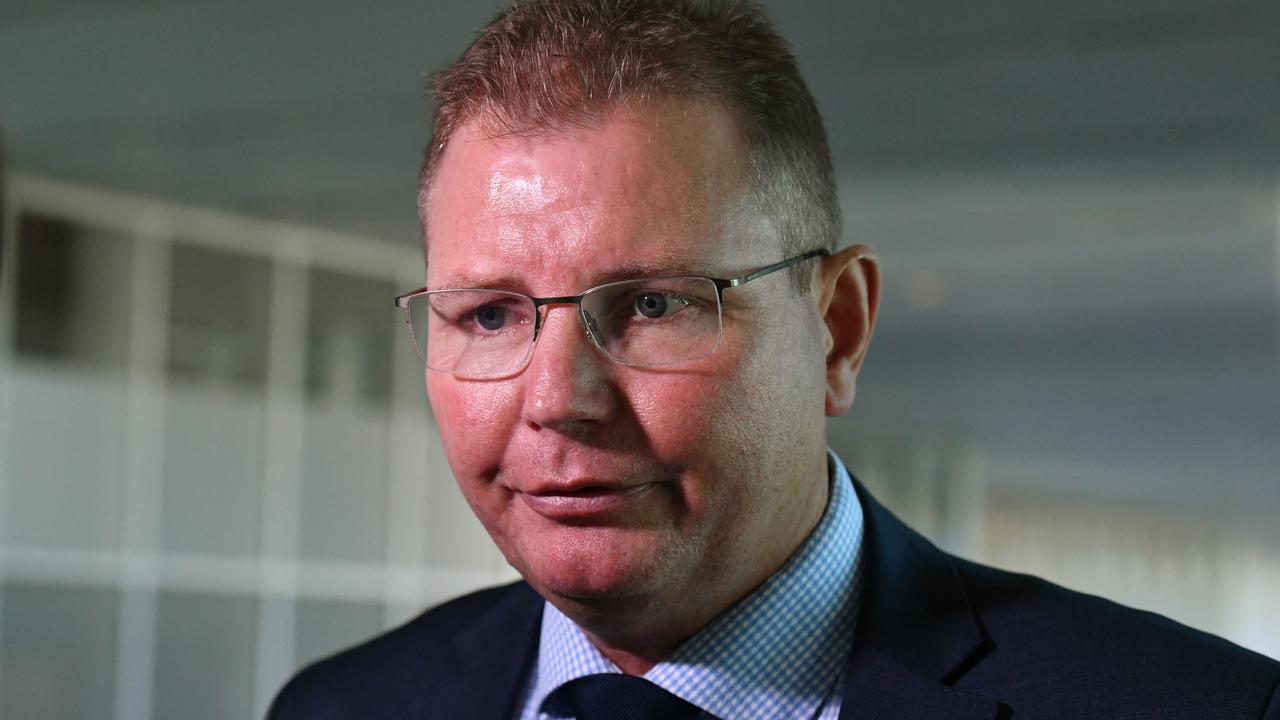Underemployed casual workers called lazy for refusing shifts
Pub baron Craig Laundy has urged underemployed Australians to “get off their backsides”, accusing casual workers of “the biggest piss take’’.
Pub baron Craig Laundy has urged underemployed Australians to “get off their backsides” accusing casual workers of “the biggest piss take’’ for refusing shifts.
The former Liberal frontbencher claims there’s a minority of staff who would rather hang out a home on the $1500-a-fortnight JobKeeper allowance
Reviving the “Job Snobs” debate Mr Laundy told news.com.au his family was struggling to fill shifts across his family’s pubs.
It follows Prime Minister Scott Morrison’s claim on Monday that there was a danger if the “dole” or JobSeeker was too high it would be a disincentive to got to work.
While bosses can sack workers who refuse to show up for shifts on JobKeeper, Mr Laundy observed that some were then obtaining sick leave certificates to protect their jobs.
“The biggest piss-take of all time, one turned up and said I’ve got mental health issues and I can’t work for a month,’’ he said.
“So under the Fair Work Act you can’t do anything!
“There is a minority that it makes sense for them not to work and they’ve been taking the Mickey.”
RELATED: Insane cost to save one Aussie job
RELATED: Aussies ‘refusing to work’ due to high dole

Mr Laundy said one mother had declined shifts because she wanted to spend time with her children on JobKeeper.
“When we reopened, I said ‘Righto, come back into work,’ and she said ‘No, I want to spend time with the kids’.
“They are coming up with a range of excuses. I would get off your backside and put your hand up.”
Mr Laundy said most employers would be keeping an informal mental list of which casual workers were doing the right thing for when JobKeeper ends in September.
“Come September, with half the bums on seat, I’ve got half the staff I had on March 22,’’ he said.
RELATED: Test could strip thousands from JobKeeper
On Monday, the Prime Minister said that ensuring there was an incentive to go to work was a big issue.
But Mr Morrison said they had to be more careful with the JobSeeker dole payment, which increased from $565 to $1115 a fortnight, saying it could get in the way of getting people back into work if left at its current level.
“What we have to be worried about now is we can’t allow the JobSeeker payment to become an impediment to people going out and doing work,” he said.
“We are getting a lot of anecdotal feedback from small businesses and even large businesses where some of them are finding it hard to get people to take the shifts back because they’re on these higher level payments.
“We’ve got to make sure we provide a reasonable level of support in the middle of the worst recession we’ve had since the Great Depression.”
RELATED: Australia is ‘rapidly approaching a cliff’
There are concerns JobSeeker payments are deterring people from finding jobs with people opting to stay on the dole rather than go back to work. #9Today pic.twitter.com/o70mbtFJwM
— The Today Show (@TheTodayShow) June 29, 2020
Labor frontbencher Bill Shorten told the Today show that he doubted the claim people were refusing to work.
“I don’t want to be in a situation where we’re kicking people when they’re down,” he told the Nine Network.
“Frankly these people have sacrificed their jobs so that we can have the social distancing and social isolation to deal with the virus.”
The Morrison Government is now considering a Treasury report into JobKeeper which is scheduled to end on September 27.
But there are rising calls for fiscal support to remain in place for some time, with the Reserve Bank of Australia warning not to withdraw that support abruptly.
Deputy RBA Governor Guy Debelle said today the economy was bouncing back but it was still the biggest hits to the economy in decades.
“Recent data indicate that the outcomes in the Australian economy have been better than earlier feared,’’ he said.
“But we should not lose sight of the fact that the decline in the economy and the impact on households and businesses is historically large. Notwithstanding the better than feared outcomes, the fiscal and monetary support that has been provided was, and remains, warranted.
“The cause of the decline this time is much different from those in the past. But it is still quite likely that this decline will have a long-lived impact that will require considerable policy support for quite some time to come.”




